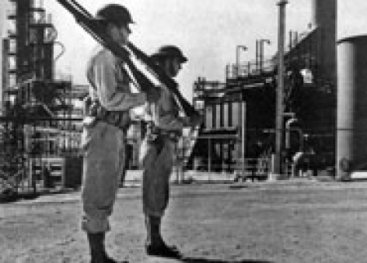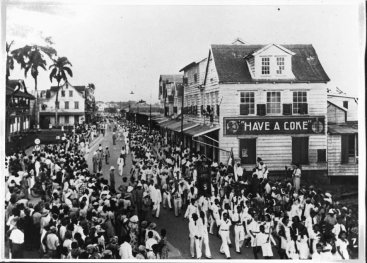
Our own culture - Our own army
The development of education and the territories’ own culture are boosted because contacts with the Netherlands have been severed. Surinam and the Antilles for the first time have a general school for secondary education (Algemeene Middelbare School).
Radio AVROS
Radio Hilversum can no longer be received, increasing the importance of local radio broadcasts: the CUROM on the Antilles and the AVROS in Surinam. Dutch is still the official language, but the broadcasters also make programmes in the local languages. The native literature also develops rapidly.
Literary magazine
On the Antilles, the literary magazine De Stoep is launched in May 1940, for Dutch language writers.
Many Antilleans write for the magazine and this inspires them to also write in their own language, Papiamento. 1944 sees the publication of the first book of poetry in Papiamento: Patria by Pierre Lauffer.


Drafted for the first time
During the war, for the first time members of the territories own population were drafted in Surinam and on the Antilles and Aruba to form their own national guard: the 'Schutterij'. The members go on patrol, build shelters, supervise air raid protection measures and operate anti-aircraft guns.
'Gunners' and volunteer groups
They cooperate closely with the US troops. Hundreds of drafted people serve as ‘gunners’ to operate anti-aircraft guns on navy or commercial ships. Dozens of them are killed in action. In addition to the Schutterij, there are volunteer services: the civic guard (Burgerwacht) on the Antilles and Aruba, and the city and country guard (Stad- en Landwacht) in Suriname. There are separate volunteer groups for women.


Europe and the Dutch East Indies
The commanders of the Dutch armed forces also want to use the drafted troops in the liberation of Europe and the Dutch East Indies. But the local politicians refuse permission. Volunteers are called for. Several dozen Surinamese, Antilleans and Arubans fight in Europe.

